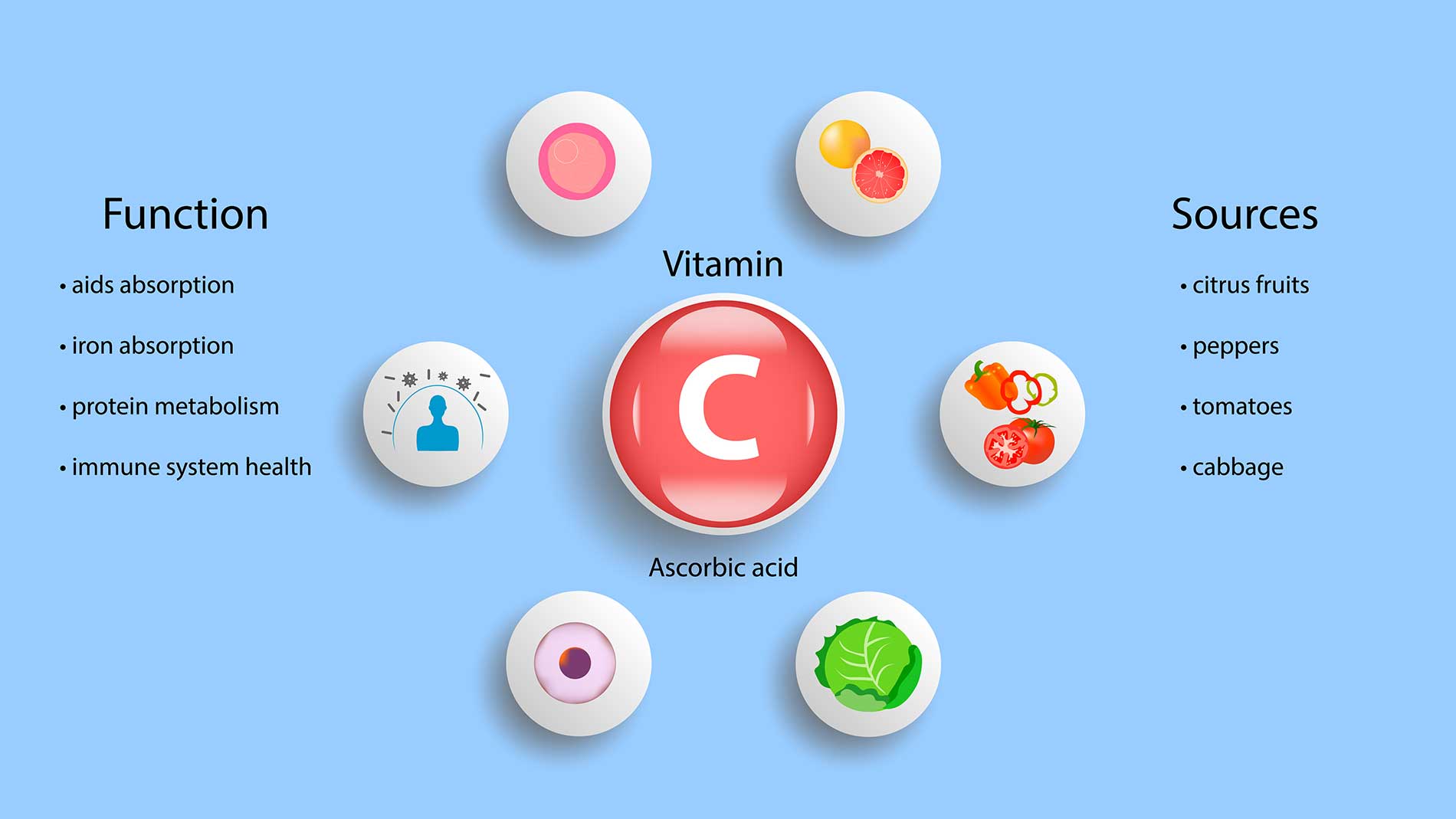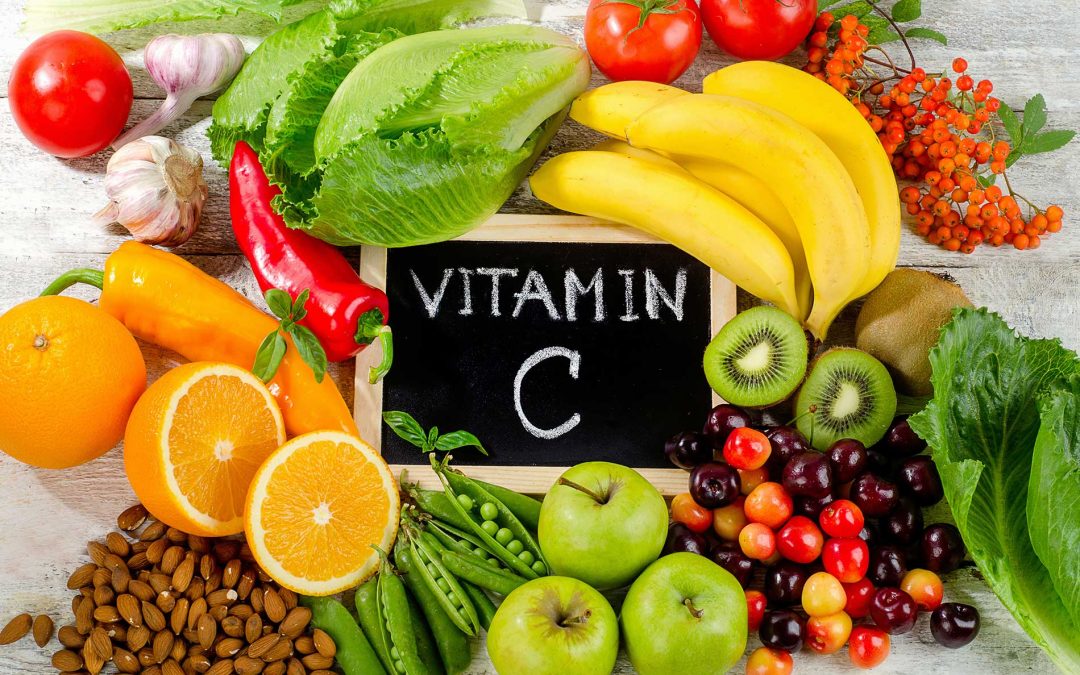Vitamin C is also called ascorbic acid and the recommended adult daily intake is 75 mg for men and 90 mg for women. This amount should be easily attainable in an average diet when fresh fruits and vegetables are available. Vitamin C deficiency is more likely in people who smoke, or have gastrointestinal conditions or certain types of cancer. Severe vitamin C deficiency leads to scurvy, a disease causing anemia, bleeding gums and easy bruising. Your body doesn’t produce vitamin C on its own, which is why you need to get it daily from your diet or take a supplement. The other essential vitamins, meaning your body can’t produce them, are A, D, E, K and the B vitamins.
Vitamin C Benefits
Vitamin C is a powerful antioxidant that strengthens the immune system. Antioxidants are molecules that fight free radicals, harmful compounds, by inhibiting oxidation and reducing inflammation. Vitamin C may help manage high blood pressure, lower risk of heart disease and reduce blood uric acid levels to help prevent gout attacks. Vitamin C helps prevent iron deficiency by improving the absorption of iron from food, and may protect memory with aging. Some studies have found that vitamin C reduces skin damage due to high UV (sun) exposure and helps inflammatory skin conditions like dermatitis. It is no wonder that vitamin C is used in facial health (nonedible) serums. Myth buster: Vitamin C will not cure the common cold.
Natural Food Sources of Vitamin C Include:
- Blackcurrants
- Broccoli
- Citrus Fruit
- Kiwis
- Peppers
- Potatoes
- Rose Hips
- Spinach
- Strawberries
- Thyme
You may not have thought eating herbs for health, but gram for gram, fresh thyme straight from your garden has three times more vitamin C than oranges and the highest concentration of all culinary herbs. Rose hips are another commonly known source of vitamin C and can be sourced locally in the wild.

Q: Can Vitamin C build up to toxic levels?
A: Yes. Do not take more than 1000 mg of vitamin C on long term use. Taking too much can cause nausea, vomiting and diarrhea, heartburn, fatigue, headaches or skin flushing. In summary, most of us can get our daily amount through a healthy diet of fruits and vegetables (and thyme!) or supplements taken in appropriate doses.
Summerland Guardian Pharmacy has been serving the local community for over a century and we continue to serve our customers through these unusual times. If you have any questions about the use of vitamins for health, please contact us for more information by calling (250) 494-0531 or filling out the web form here on our Contact page.
Thanks for visiting!

